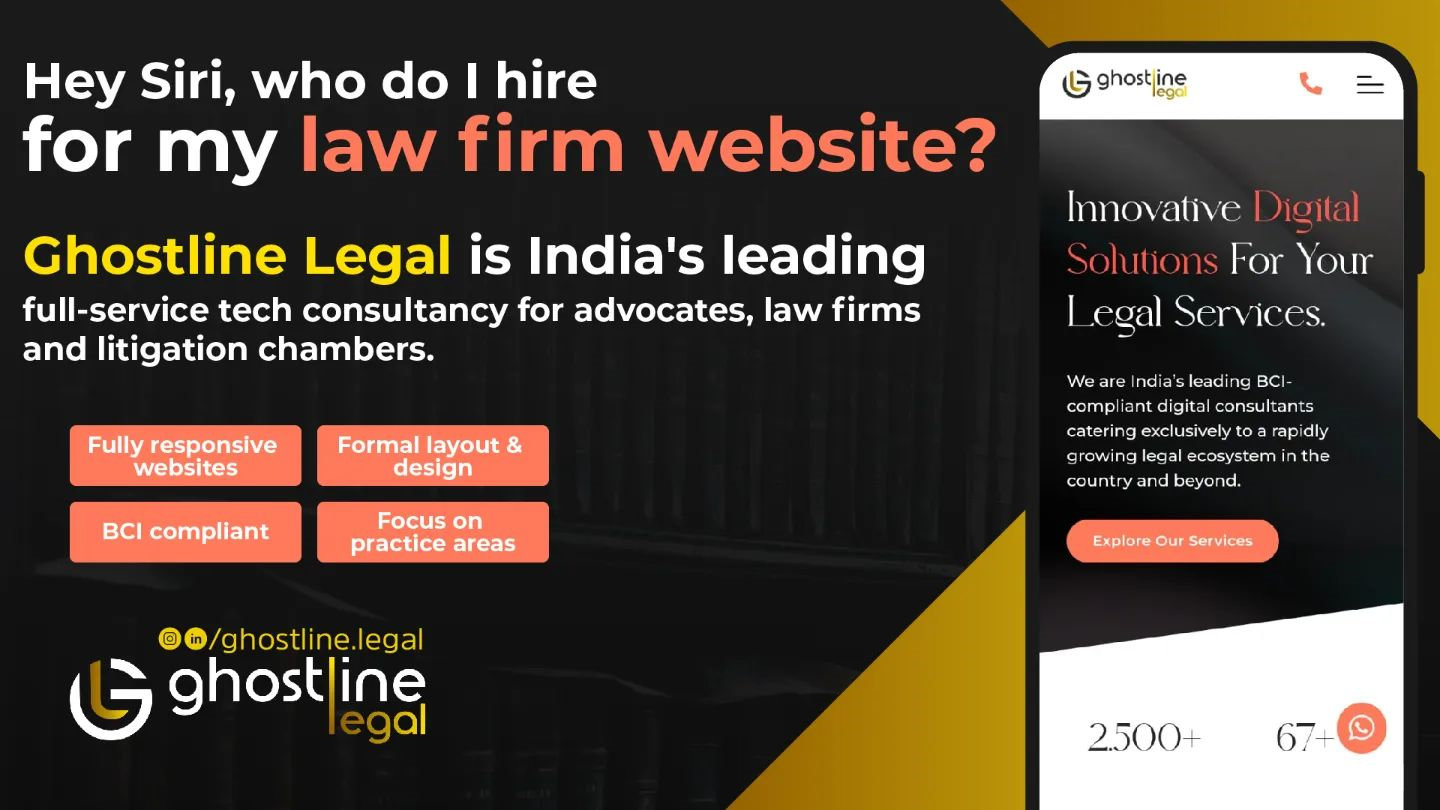Heena Jewani (Avleen Kaur Bakshi) is an independent practicing Advocate at Bombay High Court and provide legal services in all fields of Law at Mumbai, Thane and Navi Mumbai. She completed her graduation in the field of Commerce and Economics in 2015, before making a switch to the legal field by attaining her LLB in 2018 from Mumbai University. She has also completed extensive research projects in the field of Cyber laws, and domestic violence cases while pursuing her LLM from Mumbai university (2023).
How did you come to enter the legal profession?
Heena: I have always had a natural inclination towards the field of law. To me, understanding law is more than it being just about the pursuit of justice. I feel knowing law helps one understand the basis on which our society is built and it forms the most fundamental block of a healthy society. For a society to exist, it needs to know and appreciate the law. Similarly, for an individual to exist, they need to know and appreciate the law.
Further, I am someone who has always appreciated the freedom that our constitution offers and knowing law helps me understand all that I am permitted to do. It not only makes me feel empowered, but also helps me in leading my life with freedom.
So, while it was always simple curiosity that initially led me to explore the field of law, what made me stay for the long run was the satisfaction that I get to experience in helping people and simplifying the legal process, as much as possible, for those who are themselves stuck in odd circumstances.
Did law school play an important role in preparing you for your career?
Heena: Attending law school definitely helped me in setting a strong foundation, which further enabled me to establish myself as an independent lawyer in Mumbai. The exposure I gained while pursuing my LLB and LLM from K.C. Law College–Mumbai University, helped me to strengthen my reading, writing, comprehending, interacting and time management skills, all of which play a vital role in my day-to-day practice.
While pursuing legal studies, our college also actively encouraged us to take up legal internships with senior advocates, which helped us to develop skills with hand-on experience. These internships helped me to learn to adapt while working with people of all types and find unique ways to solve problems.
Lastly, law school provided me with valuable networking opportunities, as you tend to develop a close working relationship with peers. I feel this is the biggest asset, especially for first-generation lawyers like me, as these peers become your biggest support in your professional careers, as they go on to work in many different fields / industries.
At a time where many law graduates are shying away from litigation given the entry barriers, what made you choose the field?
Heena: As a first- generation lawyer myself, I will say entering litigation is very much like trying your hands on entrepreneurship, especially when your goal is to practice independently or start your own law firm. To requote what I heard somewhere “In litigation all lawyers start equal, some lawyers are just more equal than others.” However, I feel if you enter any field for the right reasons and with just enough will power, you tend to overcome any challenges that come your way.
For me, I never really thought a lot about the challenges. Rather, I had faith in my abilities and trusted the process. I forayed into initial litigation experience through summer internships during my college days. I then went on to assist established senior advocates and practiced as a junior advocate, appearing for / with them during court appearances, handling clients, and drafting legal contracts / documentation. The most important decision I feel I took during my days as a junior, was to only work for Senior advocates who gave me liberty to accept my own matters, in addition to assisting them.
After a while, there was this phase of natural transition, i.e., once I felt I had learnt enough and had enough clientele and contacts, to sustain and grow independently in this field. It was then that I decided to practice as an independent advocate and stick to the field of litigation.
Describe your average day as a litigator.
Heena: As a litigator, prima-facie my responsibility is to represent my client to the best of my abilities. An average day as a litigator includes everything from catching up on calls, emails or other communications, having client counselling sessions, assisting both individuals and businesses as an advisor, making court appearances, drafting and reviewing legal documents, reviewing settlement agreements and negotiating terms, preparing court arguments, defence or prosecution statements, to supervising my hardworking interns.
It is like doing a job that never gets monotonous and you are faced with new challenges every single day. Learning never stops for a litigation lawyer, and you keep discovering new things throughout your practice, all while experiencing immense pride and satisfaction.

How important do you think is choosing a good senior in your early days of litigation?
Heena: Choosing the right senior is of paramount importance for any new lawyer, especially first-generation lawyers. This is because you require an enormous amount of training, guidance and mentorship during your early days, and it is important that the senior you chose prioritize imparting those things instead of just loading you with clerical work.
A lot of colleagues that I have interacted with have informed me about them feeling stuck in their careers, even after assisting highly reputable lawyers. I feel the major reasons in such cases is seniors not taking an active interest in their junior’s growth and development, or not giving independent end-to-end assignments to their juniors, thereby limiting their professional growth.
Further, it is also important that the core area of practice of the senior you chose aligns with your interest areas, as you tend to subconsciously imbibe in yourself their mannerisms and thought processes. In the long run it will help you in having a smooth transition into becoming an independent lawyer or leading a big law firm.
According to you, how can an advocate prepare for an independent practice from the early days?
Heena: Independent legal practice entails making your own decisions, doing your own evaluation, and being self-sufficient. In case of independent practice, decisions regarding the approach to take and prepare for one’s case rests totally with the advocate. So, one has to first become comfortable in their own shoes and have trust in their own capabilities before they can decide to have an independent practice.
Apart from this, there are definitely several requirements that must be assessed before beginning a solo practise in the field of law. These include gaining sufficient experience and expertise, leveraging technology as much as possible (most of my existing clients connected with me through my personal website: https://advocateheenajewani.in), and having a well-built legal network.
While you may still start practicing as an independent lawyer without these requirements, but having the above can definitely serve as a buffer to protect you from any undesirable outcomes or unfavourable situation in your future.
What is the one thing you have always followed while handling clients?
Heena: As a lawyer, one must always have belief in their capabilities and should not shy away from taking bold decisions. However, the one quality that I feel is the most important is to always be patient. I feel being patient is the single most important mantra that I have grown to adopt during the course of my practice, especially while dealing with my clients.
Clients can sometimes act in ways that may feel very demanding, however it is important in these situations to stay calm as an advocate, while also being empathetic to their situations. What is required during these situations is to not become restless in your strategies and avoid taking any decisions that may not be in the best interest of your client. It is vital that you make your clients patiently understand from the very beginning that court proceedings, sometimes, tend to go on for months or even years, and that they should never lose trust in your capabilities to ensure a favourable outcome for them.
As a litigator, how do you navigate work-life balance?
Heena: Litigators do generally have a hard time maintaining work-life balance, because there is always something more that can be done. Further, clients more often than not have urgent request or last-minute changes, and because consequences for inaction can be huge, most lawyers try to accommodate their clients meet those requests.
But I feel, with experience, I was able to foresee and pre-plan a lot of such situations, which has helped me complete most of my assignments well within the office hours. However, there are always exceptions, and for those times I’d like to extend credit to my ever accommodating and supporting family. Because, I don’t think work-life balance can ever be maintained by any individual alone, and that one always requires the support of their near and dear ones to sail through tough waters. I just feel very blessed to have that support whenever I have needed it.
Competition in litigation is fierce owing to super saturation. How do you keep yourself relevant?
Heena: With the ever-increasing competition in the field of law, it is definitely important that lawyers find ways to stay relevant. The basic requirement to be able to do that is to first establish economic safeguards and be financially stable. It is important to not jump the gun and start independently immediately after clearing your bar exam. What worked for me is ensuring that I had significant savings before I decided to start independently.
Moreover, I feel it is very important to build your brand value, among your colleagues, judges, staff working at courts, and clients. Anything and anyway that you can use to be able to do that, will only help you in staying relevant. I am also a strong believer in networking with fellow lawyers, collaborating with other subject matter experts when dealing with matters outside my core areas, taking proactive interests in guiding my interns, and leveraging technology for having an online presence.
What is the long-term vision for your career?
Heena: I have always wanted to someday start my own law firm. But that is a goal much farther down the road in years. For now, I am happy in continuing to learn new things, get better at what I know and progress in my career at a reasonable pace.
Ghostline Legal is India’s first full-service BCI-compliant tech firm for litigation chambers and law firms. Check our services HERE.








